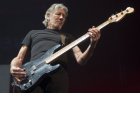Nouvelles
-
 20 August 2013, by Roger Waters
20 August 2013, by Roger Waters
À mes collègues du Rock and Roll
Lors de la récente édition des « Promenade Concerts » au Royal Albert Hall à Londres, Nigel Kennedy, virtuose violoniste britannique, a mentionné la politique d’apartheid d’Israël. Rien de (...) -
 22 April 2013
22 April 2013
Entretien avec Kamal Lahbib, membre du Conseil international du Forum social mondial
“Le FSM de Tunis, c’est le retour en force du politique” Libération : Quel bilan peut-on faire du Forum social mondial (FSM) ? Kamal Lahbib : Plus que positif. Au-delà de nos espérances. (...)
Journal des alternatives
-
 15 octobre 2021, par Jean-Charles Bernard
15 octobre 2021, par Jean-Charles Bernard
Une autre pandémie est possible
Selon le psychiatre auteur de cette tribune, une approche démocratique de la pandémie est possible. Dans sa vision, tous resteraient égaux devant la médecine et leurs doutes ne seraient pas (...) -
 15 octobre 2021, par Alain Bihr
15 octobre 2021, par Alain Bihr
Les contradictions du capitalisme révélées par le Covid-19
Depuis son déclenchement fin 2019, la pandémie de Covid-19 a donné lieu à une gestion d'apparence désordonnée, voire chaotique, de la part de l'ensemble des gouvernements, quelles qu'aient été (...)
 Se connecter
Se connecter















